By: Brendan Jordan, VP of Transportation and Fuels, Great Plains Institute
Three Midwestern states will consider Low Carbon Fuel Standard bills in their state legislatures this year. The ethanol industry is at the table in Illinois, Michigan and Minnesota to assure that any policies that pass stay true to the core principles for a Midwestern program: technology and fuel neutral, apply science and engineering-based lifecycle assessment using the Argonne GREET model and offer incentives for climate-smart farming practices that help lower ethanol’s carbon intensity. The ethanol industry will be at the table monitoring these issues and others as legislative sessions proceed in 2024.
In Illinois, Senator Koehler recently released an amended version of his Clean Transportation Standard (another name for a low carbon fuel standard, or clean fuel standard) bill on February 8. The Senate bill is attracting Senate co-sponsors, and recently picked up a sponsor for a House companion bill. To speak to a few issues of interest to the ethanol industry, the Illinois bill specifies the Argonne GREET model for conducting fuel lifecycle assessment and tasks state agencies to “recognize voluntary farm emissions reductions that contribute to the reduced carbon intensity of fuels by allowing…farm-level carbon intensity scoring.” Supporters are pushing for a first hearing in the Senate Energy and Public Utilities Committee.
In Minnesota, the legislature passed a provision in 2023 establishing a Clean Transportation Standard working group to develop recommendations for the 2024 legislative session. The working group included 40 participants from a range of perspectives and included representatives from the ethanol industry and agricultural commodity groups. The final working group report was released on February 20. The report offers a range of recommendations of interest to the ethanol industry, including allowing sustainable aviation fuel to participate in the market, allowing climate-smart agricultural practices to be factored into fuel lifecycle assessment and receive incentives and allowing credit for carbon capture and storage. Supporters of a clean transportation standard bill in Minnesota are waiting to see how the bill authors, Senator Scott Dibble and Representative Jeff Brand, will respond to the working group recommendations and what will be included in a bill amendment for this year’s session.
Finally, a Michigan coalition continues to press forward with their own proposal – referred to as a Clean Fuel Standard. Senator Sam Singh and Representative Joey Andrews are seeking to move a bill this year, with broad coalition support that includes ethanol industry and agricultural commodity group members. Bill supporters are currently pushing for a bill hearing in the Senate Energy and Environment Committee.
This will be a big year for these policies. It’s time to move beyond west coast programs and finally establish a Midwestern approach. Ethanol has an important role to play in decarbonizing the transportation sector, and industry leaders will be actively involved in making sure your priorities are reflected in these policies.




